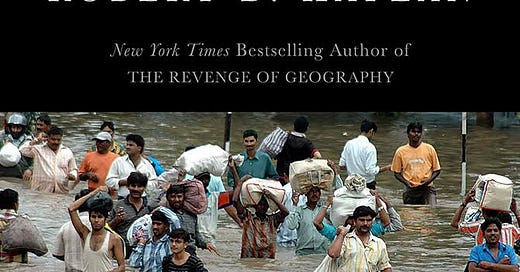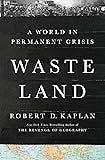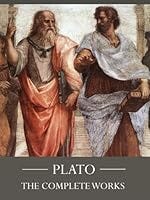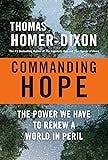Waste Land
Robert D. Kaplan
The soldiers and Marines from blue-collar families who fought in Iraq and Afghanistan—who I can attest as an embedded war reporter were originally enthusiastic about the prospects of victory—in significant measure turned to Trump following the abject failure of both wars, something which became undeniably apparent around the beginning of the century’s second decade. Yet the failure of the Iraq War was never truly central to Trump’s election: not nearly as central as was the outsourcing of well-paying manufacturing jobs to China and other developing countries, the further job-killing effects of automation, the anemic growth of the American economy in the years before Trump’s victory, or general cultural issues that occupied the media and obviously played a significant role.
I suspect that disgruntled veterans are more of a problem, especially in politics, than most of us realize.
Iraq mattered in another, more subtle way. It was the most clear-cut example of the general deterioration in the quality of American leadership since the end of the Cold War. Even considering the Biden Administration’s middling-competent handling of the Ukraine War thus far, the record of presidential leadership in foreign policy from Harry Truman to George H. W. Bush (and including Dwight Eisenhower, Richard Nixon, and Ronald Reagan) was of a much higher caliber than from Bill Clinton to the current occupant of the White House [Biden] (and including George W. Bush and Donald Trump).
It’s certainly gone down further with Trump back and more active. Stupidity in action is appalling.
Such a palpable decline from one group to another, despite individual variations, was related to a decay in the culture of public life, especially the media, in which the forces acting upon all of these men had become more divisive, intolerant, and even hysterical at times. And as the media has become less serious, so have our leaders.
Disagree?
The media, with its right- and left-wing extremes, each seeking to proclaim its virtue in its own way, has often encouraged our post–Cold War presidents to be moralistic rather than moral. Passion, often the enemy of analysis, is precisely what is encouraged by social media, which has had such an insidious effect on our politics. To some extent, nations, especially in democracies, get the leaders they deserve. America was a great and well-functioning mass democracy in the print-and-typewriter age. It is unclear whether it can continue as such in a digital-video age aggravated by social media, which promises to be further manipulated by artificial intelligence.
Shades of Marshall McLuhan here?
The Complete Works of Plato [Annotated]
And when his other lusts, amid clouds of incense and perfumes and garlands and wines, and all the pleasures of a dissolute life, now let loose, come buzzing around him, nourishing to the utmost the sting of desire which they implant in his drone-like nature, then at last this lord of the soul, having Madness for the captain of his guard, breaks out into a frenzy: and if he finds in himself any good opinions or appetites in process of formation, and there is in him any sense of shame remaining, to these better principles he puts an end, and casts them forth until he has purged away temperance and brought in madness to the full.
I don’t know what dialogue this quote is taken from, the scenario sure seems familiar today.
First, we are under almost irresistible pressure to adopt a view consistent with one hemisphere’s take or the other: it is too risky to draw, as we should, on both. And second, one of these takes, namely that of the left hemisphere, is very much simpler – indeed it is simplistic; and therefore far easier to articulate. It sees matters as black and white, ‘either/or’. The right hemisphere sees the nuances, as well as that we often must embrace two superficially incompatible truths in a ‘both/and’ – one, moreover, that includes embracing both its own take and that of the left hemisphere: altogether a far harder, and more complex, view to articulate.
As T.S. Eliot famously wrote, “Human kind cannot bear very much reality.”
Ain’t that the truth—and a big problem.
He [R.G. Collingwood] also distinguishes between amusement art and art as magic, a useful and long-standing device whereby the magical acts (or arts) “generate in the agent . . . certain emotions considered necessary . . . for the work of living . . . the function of magic is to develop and conserve morale, or [when pointed at one’s enemies] to damage it.”
Art as a type of magic. A fascinating insight.
Ten Lessons for a Post-Pandemic World
Cas Mudde, a Dutch political scientist, provides the most useful definition of populism: an ideology “that considers society to be ultimately separated into two homogenous and antagonistic groups: ‘the pure people’ and ‘the corrupt elite,’ and argues that politics should be an expression of the volonté générale (general will) of the people.”
Not a bad starting point. The “us vs. them” perspective plays a prominent role in fascism and other right-wing ideologies. It’s also the basis of German Carl Schmidt’s political and legal thought.









